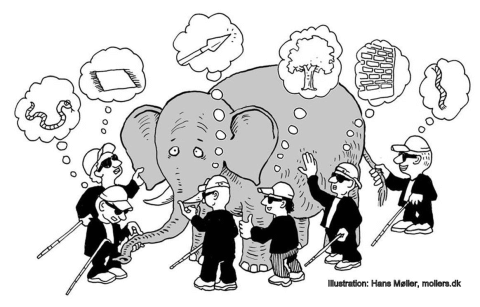
This post was created in collaboration with the Minnesota Journalism Center.
Objectivity and neutrality have been cornerstone norms of journalistic practice in democracies in the Western world for over a century. However, in recent years ideals of fairness, accuracy, and balance have come under increasing attack from many different and sometimes unexpected directions.
Many beliefs about the need for media objectivity go back to Alexis de Tocqueville’s 19th century argument that the circulation of newspapers are integral to fostering a functional and effective democracy. Indeed, objectivity became a news value in the 1830s, partly to do with the rise of the Associated Press (AP), created in 1848 by a group of New York newspapers that wanted to take advantage of the speed of the telegraph in transmitting news to multiple outlets. To transmit news to a variety of news outlets with a variety of political allegiances consistently, a sense of objectivity had to be maintained to be relevant to as wide an audience and clientele as possible.
- Michael Schudson. 1981. Discovering The News: A Social History Of American Newspapers. New York, NY: Basic Books.
- Gaye Tuchman. 1972. Objectivity as Strategic Ritual: An Examination of Newsmen’s Notions of Objectivity. American Journal of Sociology 77(4): 660–679.
Cutting against these norms was the sensationalism of newspaper content in the late 19th century. While the use of emotion in reporting has often been connected to the commercialization and tabloidization of journalism, in recent years it has also appeared in coverage of disasters, crises, and human rights abuses — and has come to be seen as positive and valuable as well. The roles of objectivity and impartiality have always been contested within journalistic practice, so rather than seeing emotion as the opposite of objectivity, some scholars now argue it can come alongside and inform journalistic practice worldwide.
- Karin Wahl-Jorgensen. 2019. Emotions, Media and Politics. Medford, MA, USA: Polity.
- Matt Carlson. 2017. Journalistic Authority: Legitimating News in the Digital Era. Columbia University Press.
- Valerie Bélair‐Gagnon. 2013. Revisiting Impartiality: Social Media and Journalism at The BBC. Symbolic Interaction 36(4): 478–492.
The role of objectivity has also come into question as a mechanism that can silence marginalized writers and populations. Relatedly, news can also reinforce institutions of power in society, for better or for worse. In populist countries including Argentina, Bolivia, Ecuador, Nicaragua, and Venezuela, “professional journalism” is often pitted against “militant journalism” promoted by neo-populist governments and their sympathizers — a movement that has critical implications for the freedom of the press in societies in the Global South. Also, news media has been found to negatively portray protests and protesters.
- Danielle Kilgo and Summer Harlow. 2019. “Protests, Media Coverage, and a Hierarchy of Social Struggle.” The International Journal of Press/Politics 24(4): 508–530.
- Lewis Raven Wallace. 2019. The View from Somewhere: Undoing the Myth of Journalistic Objectivity. University of Chicago Press.
- Silvio Waisbord. 2013. Reinventing Professionalism: Journalism and News in Global Perspective. Cambridge: Polity.
